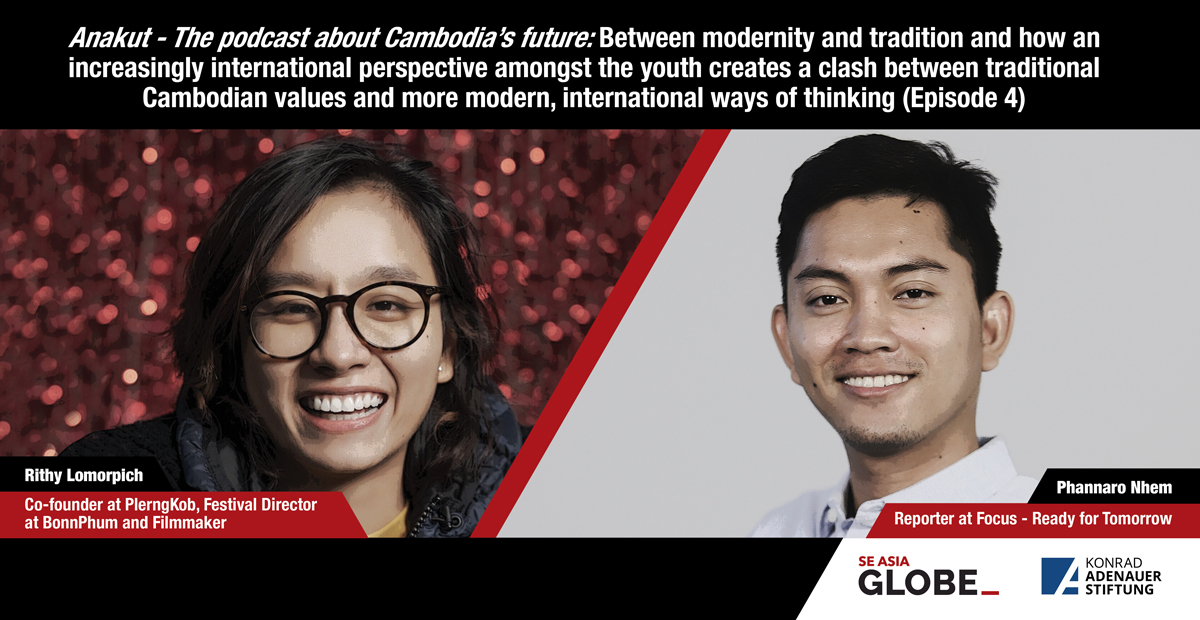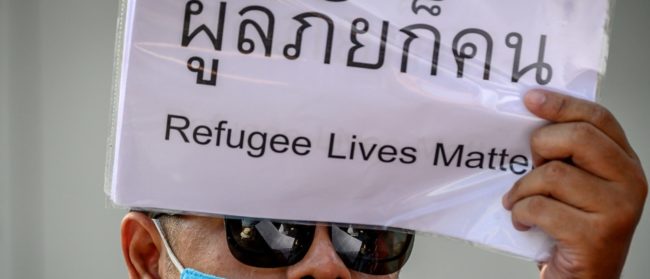The long wait is over: Anakut is back with a brand new episode.
Grab your kroma and settle in, because this week we’re getting cultural. Meng and I were looking to answer some of the deep questions of Cambodian identity, going way past Angkor to learn what it means to be Cambodian in this day and age. To do that, we brought our friends Lomorpich Rithy and Phannaro Nhem into the studio to pick their brains and get a conversation going about what happens when tradition meets modernity.
Lomorpich has made her young career in that very concept. She’s the founder of Plerng Kob (ភ្លើងគប់), or Campfire, and the annual Bonn Phum (បុណ្យភូមិ), a new-school imagining of the annual village festival of the same same. While the classic bonn phum is usually a low-key way to raise village morale ahead of Khmer New Year, Lomorpich’s version is a showcase of Cambodian arts, music and dance. It’s not the bonn phum your grandparents knew as kids, but then, Phnom Penh is no village.
Phannaro, or Naro for short, is a good friend of the Globe and a writer at our partner publication Focus: Ready for Tomorrow. Though he’s not yet organised a festival of his own, he’s no stranger to parsing out the nuance of modern Cambodia by making his home between identities. Educated in South Korea, Naro returned to his big-city hometown and became a teacher himself. When he’s not chronicling modern life, he’s a grad student looking to expand on his skills as a chemistry instructor.
This episode got personal fast. That’s because our guests don’t just work in fields that measure traditional and modern values – they live on that tightrope and define themselves on the balance.
For Lomorpich, the mingling of old and new has been a key motivator, especially for her version of Bonn Phum. She’d seen a niche for the event when her peers in the city confessed a lack of understanding or knowledge of certain aspects of their cultural heritage. Some traditions, especially those tied to the land or agrarian rhythms, began to feel abstract in the urban setting of Phnom Penh. But Lomorpich says the event isn’t necessarily meant to recreate things in the exact form they once had, but rather to capture their spirit and meaning.
That’s all well and good for customs that ground people in a larger sense of community or belonging. But what about those that define people’s roles in society, or set limits on their behaviour? This is another piece of any cultural discussion, and it’s one that Naro said has contributed to a mounting identity crisis he’s been feeling as he reckons with his own multifaceted self. Speaking English with friends, Khmer at home and with ambitions not bound to any one place, in some ways Naro’s condition is a mirror for that of Cambodia.
We get into all this and more, covering the finer details of culture while piecing together a bigger picture of how the tension between old and new is reshaping the Kingdom as we know it. This was a fun episode to record, and I think that comes through in the final cut. Hit the play button above and let us know what you think.
All episodes of the podcast can be found on our Anakut webpage, Amazon, Apple, Google and Spotify. This episode of Anakut was recorded at Serey Studio in Phnom Penh.


